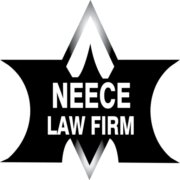Best Criminal Litigation Lawyers in North Carolina
Share your needs with us, get contacted by law firms.
Free. Takes 2 min.
Or refine your search by selecting a city:
List of the best lawyers in North Carolina, United States
About Criminal Litigation Law in North Carolina, United States
Criminal litigation in North Carolina involves the process by which the state prosecutes individuals or entities accused of violating criminal laws. Criminal cases can range from misdemeanors to serious felony offenses. The litigation process includes arrest, arraignment, pre-trial motions, trial, and potentially appeal. Defendants are presumed innocent until proven guilty, and the prosecution must establish guilt beyond a reasonable doubt. North Carolina’s criminal justice system features both state and local law enforcement agencies, as well as a variety of courts responsible for different case categories.
Why You May Need a Lawyer
If you are accused of a crime in North Carolina, seeking assistance from a qualified criminal defense lawyer is often crucial. Common scenarios include being arrested, receiving a summons for a misdemeanor, being investigated by law enforcement, or facing trial for felony charges. A lawyer can help you understand your rights, represent you in court, negotiate plea deals, and build a strong defense strategy. Legal representation is also important for individuals who have been wrongfully accused, wish to appeal a conviction, or want to expunge a criminal record.
Local Laws Overview
In North Carolina, criminal law covers a wide range of acts, including theft, assault, drug offenses, driving while impaired (DWI), domestic violence, and more. The state divides crimes into misdemeanors and felonies, with further levels of classification determining maximum penalties. Misdemeanors are less serious, but still may result in jail time, fines, or probation. Felonies carry more severe consequences, including lengthy prison sentences.
North Carolina also follows specific procedures regarding arrests, search warrants, and evidence collection. The state’s criminal code lists possible defenses, such as self-defense or insanity. Additionally, North Carolina uses a structured sentencing system, meaning that penalties are typically dictated by law and prior criminal history, limiting judicial discretion in sentencing.
Defendants have the right to a speedy trial, assistance of counsel, and due process under the Constitution. Juvenile cases are generally handled differently, with a focus on rehabilitation. Unique to North Carolina, some traffic offenses and minor infractions are considered criminal and can impact your record.
Frequently Asked Questions
What is the difference between a misdemeanor and a felony in North Carolina?
Misdemeanors are less serious crimes that carry lighter penalties, such as a short jail sentence, fines, or community service. Felonies are serious offenses with much harsher penalties, including long-term imprisonment.
Can I be arrested without a warrant in North Carolina?
In certain situations, such as witnessing a crime or when there is probable cause, law enforcement officers can arrest someone without a warrant. Otherwise, an arrest warrant is typically required.
What are my rights if I am arrested?
You have the right to remain silent, the right to an attorney, and the right to know the charges against you. Exercise your rights and request to speak with a lawyer as soon as possible.
How does bail work?
Bail allows a defendant to be released from custody while awaiting trial, provided they guarantee their appearance in court. Amounts and eligibility are determined by a judge based on the severity of the offense and the individual’s history.
What should I do if I am contacted by law enforcement for questioning?
You should respectfully request to have your attorney present before answering questions. Anything you say can be used against you in court, so it is important to have legal counsel.
How long does a criminal case take in North Carolina?
The duration of a criminal case varies depending on its complexity, charges involved, the evidence, and case backlog. Some cases resolve in weeks, others take months or longer, especially if they go to trial.
Can I get a criminal record expunged?
Some criminal records in North Carolina may be eligible for expungement, especially for minor offenses or cases where charges were dismissed. The process requires a petition to the court and meeting specific eligibility criteria.
Should I accept a plea bargain?
Plea bargains can sometimes reduce charges or penalties, but you should always consult with a lawyer before accepting or rejecting a deal, as it waives some of your legal rights.
What happens if I am convicted of a crime?
If convicted, you may face jail or prison time, probation, fines, community service, or other penalties. A conviction will also likely result in a permanent criminal record, which can affect employment and housing.
What if I cannot afford a lawyer?
If you cannot afford to hire a lawyer, the court will appoint a public defender or court-appointed attorney to represent you at little or no cost.
Additional Resources
- North Carolina State Bar: Provides lawyer referrals and information on legal rights.
- North Carolina Office of Indigent Defense Services: Offers information about public defenders and eligibility for free legal counsel.
- North Carolina Judicial Branch: Offers forms, guides, and general resources about criminal procedure and court locations.
- Local Legal Aid Organizations: Some nonprofits and legal clinics provide assistance or guidance for those facing criminal charges.
- Local law libraries: Public law libraries can be useful for researching specific criminal laws and procedures in North Carolina.
Next Steps
If you are facing criminal charges or believe you might be under investigation in North Carolina, it is important to act quickly. Gather any legal documents related to your case and write down everything you remember about your situation. Do not speak to law enforcement or other parties about the details of your case without a lawyer present. Begin searching for a qualified criminal defense attorney or contact the public defender’s office if you cannot afford representation. Use the additional resources listed to educate yourself about your rights and responsibilities. Finally, attend all scheduled court dates and follow your lawyer’s advice carefully to protect your interests.
Lawzana helps you find the best lawyers and law firms in North Carolina through a curated and pre-screened list of qualified legal professionals. Our platform offers rankings and detailed profiles of attorneys and law firms, allowing you to compare based on practice areas, including Criminal Litigation, experience, and client feedback.
Each profile includes a description of the firm's areas of practice, client reviews, team members and partners, year of establishment, spoken languages, office locations, contact information, social media presence, and any published articles or resources. Most firms on our platform speak English and are experienced in both local and international legal matters.
Get a quote from top-rated law firms in North Carolina, United States — quickly, securely, and without unnecessary hassle.
Disclaimer:
The information provided on this page is for general informational purposes only and does not constitute legal advice. While we strive to ensure the accuracy and relevance of the content, legal information may change over time, and interpretations of the law can vary. You should always consult with a qualified legal professional for advice specific to your situation.
We disclaim all liability for actions taken or not taken based on the content of this page. If you believe any information is incorrect or outdated, please contact us, and we will review and update it where appropriate.
Browse criminal litigation law firms by city in North Carolina
Refine your search by selecting a city.















